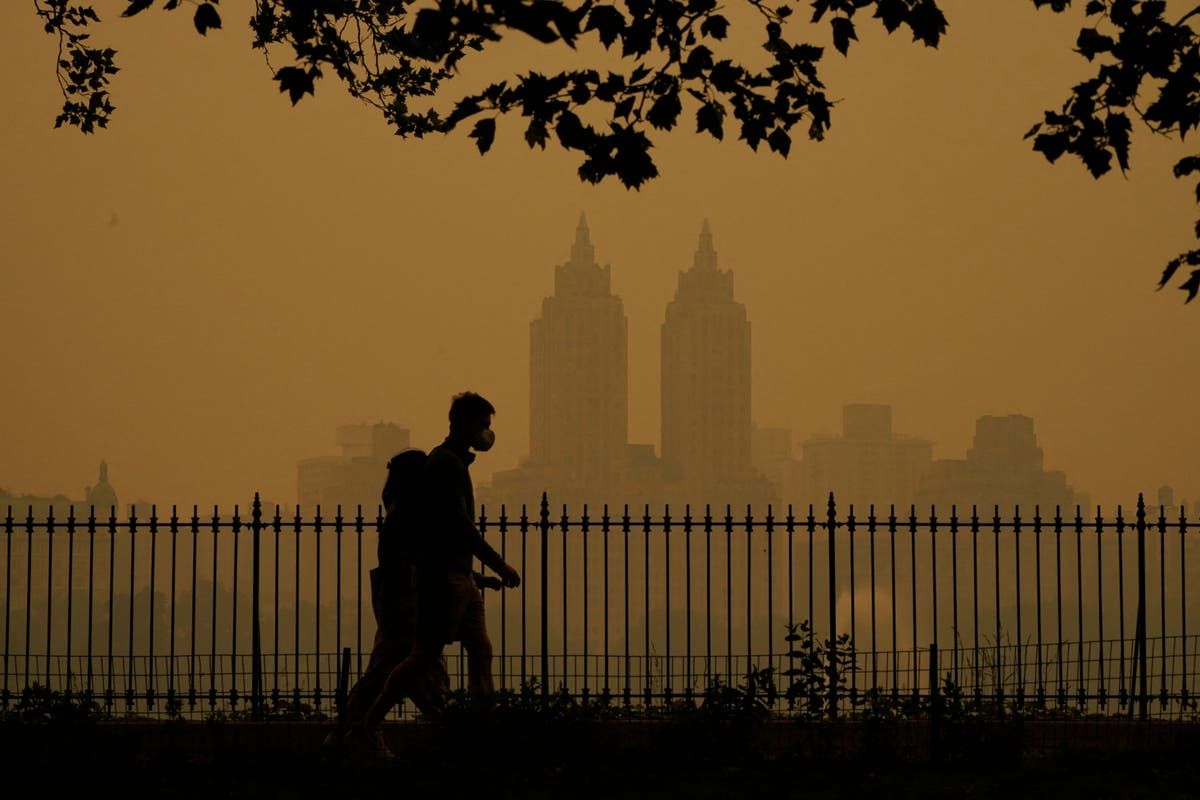Truly support
independent journalism
Our mission is to provide unbiased, fact-based reporting that holds the powerful to account and exposes the truth.
Whether it's $5 or $50, every contribution counts.
Support us in offering journalism without agenda.
Long-term exposure to air and noise pollution may increase the risk of infertility, a new study has revealed.
Fine particulate matter in the air and road traffic noise contributed to infertility in both sexes, the study found, with air pollution having a greater impact on men and noise pollution affecting women more significantly.
The study, published in the journal British Journal of MedicineOn Thursday, the study explored how exposure to environmental pollutants, now common for people living in cities, impacted reproductive health.
The study, conducted in Denmark, analysed data from 526,056 men and 377,850 women aged between 30 and 45 who were living together or married and had fewer than two children. The participants were followed from 2000 to 2017.
PM2.5, tiny particles that can penetrate deep into the lungs and bloodstream, were linked to a 24 percent increased risk of infertility in men exposed to higher average levels over five years.
“The results are interesting and appear to confirm the hypothesis that exposure to fine particulate air pollution is associated with an increased risk of infertility in men,” said Dr. Allan Pacey, professor of andrology at the University of Manchester, who was not involved in the study.
“This has been an issue of concern for some time, but my reading of the literature is that previous studies have been relatively small and have often used surrogate markers of infertility, such as changes in semen quality. In this current study, the authors have linked exposure to infertility diagnosis, which I think is more robust.”
Exposure to PM2.5 did not have a similar effect on women's fertility.
What did was road traffic noise, which was associated with a 14 percent increased risk of infertility among women over 35 who experienced high noise levels for five years. This association was not seen in women aged 30 to 35.
“Although noise has not been widely studied in relation to fertility, there is evidence to suggest a link between noise-induced stress and sleep disruption, which could affect fertility,” said Dr Alison Campbell, scientific director at Care Fertility, who was not associated with the study.

In men, road traffic noise showed a slight increase in the risk of infertility in the 37-45 age group, but no significant effect in younger men.
The study's findings were consistent across regions and socioeconomic groups, suggesting that risks associated with pollution were widespread.
However, researchers and other experts caution against drawing direct cause-and-effect conclusions. “We have to remember that this is an association and we cannot infer cause or effect from the data presented,” says Dr. Pacey.
“The authors have done a good job of controlling for several important confounders, such as socioeconomic factors, but it is possible that the real cause of this association lies in something that was not possible to measure.”
Although the study controlled for income, education and occupation, it did not take into account lifestyle factors such as smoking, alcohol consumption or body mass index, which could influence infertility risk. It also did not measure exposure to pollution and noise outside the home, such as in the workplace.
The researchers said further studies are needed to confirm the findings and better understand the potential impact of pollution on fertility.
“If our results are validated, it will highlight the importance of implementing policies to mitigate air and noise pollution as part of efforts to improve reproductive health,” they said.
Air pollution was responsible for 8.1 million deaths globally in 2021 by contributing to various health conditions, making it the second leading risk factor for death, according to the UN.
In 2022, despite emission reductions, most urban populations in the European Union remained exposed to harmful levels of air pollutants.
The Independent will reveal its Climate100 list in September and will host an event in New York, which can be attended online.












